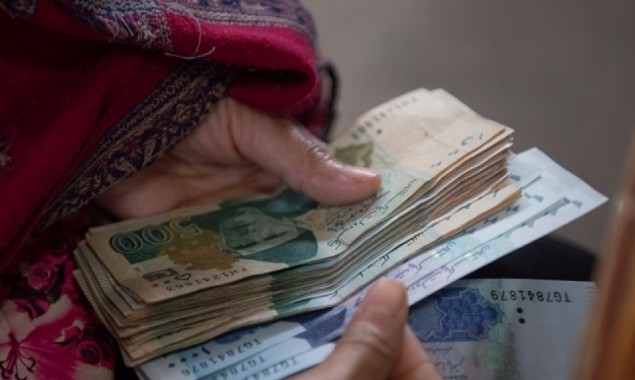
KARACHI: The Covid-19 pandemic badly affected the global economy and household earnings, but it proved a boon for Pakistan, as the country witnessed the highest surge in remittances among 45 developing nations, a World Bank report revealed.
Overseas Pakistanis sent 17 per cent more back home, owing to the launch of tax incentives for the expatriates during the Covid-19 pandemic, it added.
A portion of the recorded rise in remittances could represent the repatriated savings of those immigrants who are returning home after losing their jobs or are unable to find a new job due to the coronavirus, it said.
Remittances flows are a major source of income for all countries in South Asia, larger than all other capital inflows combined, it said, adding that in 2019, India received more remittances than any other country in dollar terms and Nepal ranked third in the world in terms of remittances to GDP ratio at 27 per cent.
The report also showed that remittances seem to have been even more essential during the Covid-19 pandemic, showing a growth of 5.2 per cent in 2020 in South Asia, but this was somewhat surprising because the global household surveys showed decline in remittances, especially in the second quarter of 2020.
Several studies indicate that the remittances tend to increase when receiving households experience disasters or recessions; however, since the Covid-19 shock was global. Both the recipient and the sender countries were badly impacted.
Migrant workers in North America, European Union nations and the Middle East are mostly employed in contact-intensive service sectors, which were hit hard by the Covid-19 pandemic.
Likewise, Saudi Arabia granted less than 10,000 visas per quarter in the first and third quarters of 2020, compared with an average approval rate of over 40,000 visas.
The World Bank’s latest South Asia Economic Focus shows that several factors, which are attributable to the increase in remittances in 2020, need policy interventions.
The report also showed that remittances could have shifted from informal to formal channels. A part of the rise was just documentation of the flows, which remained unnoticed in the past. Increasingly, the policymakers want to encourage greater formal remittances.
Before the Covid-19 pandemic-related travel restrictions, a significant share of remittances may have arrived in the country through the home visit by the migrants or their trusted family members or friends with cash in hand, gifts, etc. This was no longer an option during the pandemic, it added.
The dire economic conditions in South Asia could have encouraged greater giving by the migrants’ close family members and community ties. The South Asian countries rank high, compared with the other middle-income countries on a measure of altruism based on Findex, a global database of how adults save, borrow, make payments and manage risks.
The current giving campaigns by diaspora, amid the health crisis in India suggests that this altruism is alive and well in 2021, the World Bank report showed.
However, the shift to more formal channels was facilitated by the accelerated development of Fintech and digital transfer apps such as G-pay and Alipay, which have made the digital transfer of funds more accessible and cheaper per transaction, leading to an overall increase in remittances.
The report suggested the South Asian governments to expand job-matching sites, establish registries, and sponsor Fintech platforms that will further bring down the cost of digital payments.
A single-corridor Fintech solutions are giving way to multiple-corridor platforms which could enable the local institutions to access both sender and receiver through digital wallets, the report said.
It also said that for many low-income households in the receiving country, remittances are key to alleviating poverty.
It is unclear whether the surge in remittances is temporary or permanent, as much will depend on the post-Covid migration policies in host countries.
The pandemic has provided an opportunity to better reap the economic benefits of migrant work, the report said, adding that for the host countries, migrants are willing to work hard and consistently if provided with reasonable opportunities, raising the growth potential of the host countries, the report added.
Read More News On
Catch all the Business News, Pakistan News, Breaking News Event and Latest News Updates on The BOL News
Download The BOL News App to get the Daily News Update & Follow us on Google News.




